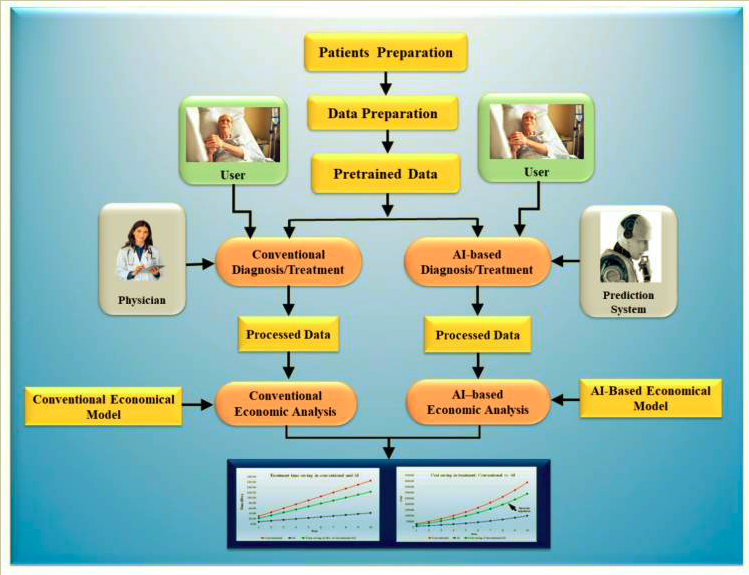Healthcare expenditure continues to rise, despite advances in medical training and technology. We’ve touched on this before, using an example from the US, where they have experienced these escalating costs. This was largely healthcare expenditure waste. Unfortunately, underperforming public services and poor health outcomes have been coupled with this. This, however, created the shift towards more efficient, cost-effective solutions. One such solution is the use of Artificial Intelligence (AI) in healthcare, and its role in reducing healthcare waste and cost.
AI has the potential to dramatically reduce inefficiencies in the healthcare system, leading to a more streamlined and cost-effective health ecosystem. This integration into healthcare is able to transform the approach to patient safety, hospital administration, drug development, and treatment decisions. AI is paving the way for rapid care management, enabling healthcare professionals to access real-time patient information at the touch of a button. This ability to quickly access and analyse patient data can significantly reduce casualties in emergency situations. The main outcome created is that of value.
The Economic Implications of AI in Healthcare
 A start-up, backed by the University of Toronto, recently created a supercomputer algorithm to evaluate millions of potential Ebola treatments. This breakthrough creates value through cost and time reduction, and more importantly, it saves lives by improving existing treatments. With consumers (patients) increasingly using wearables, AI utilises this data for early detection of disease. This again reduces healthcare costs. In the referenced study it showed that AI significantly reduces healthcare costs compared to conventional methods.
A start-up, backed by the University of Toronto, recently created a supercomputer algorithm to evaluate millions of potential Ebola treatments. This breakthrough creates value through cost and time reduction, and more importantly, it saves lives by improving existing treatments. With consumers (patients) increasingly using wearables, AI utilises this data for early detection of disease. This again reduces healthcare costs. In the referenced study it showed that AI significantly reduces healthcare costs compared to conventional methods.
The cost-saving due to AI used in treatment which has been found to be more effective than in diagnosis. AI not only enhances diagnostic accuracy but also minimizes inaccurate examinations, comforting patients. In terms of time, AI-assisted tools require less time for diagnosis, resulting in cost savings. For instance, in the initial year, the time savings amount to 3.33 hours per day, and by the tenth year, the time saving reaches 15.17 hours per day.
The Future of AI in Healthcare
AI must meet established quality requirements and importantly regulatory bodies must certify it. This will assist in the utilisation within healthcare, leading to full integration into existing systems. It would be important to conduct an economic analysis to compare the costs of AI-based diagnosis and treatment approaches with conventional approaches. These results show that it can significantly reduce healthcare costs compared to conventional methods.
AI possesses the potential to optimise the healthcare industry by reducing costs, improving efficiency, and enhancing patient care. However, to fully realise this potential, it is crucial to integrate AI into healthcare in a way that is economically viable and meets established quality standards.
Cover and in-text images taken from the article in the reference URL below




